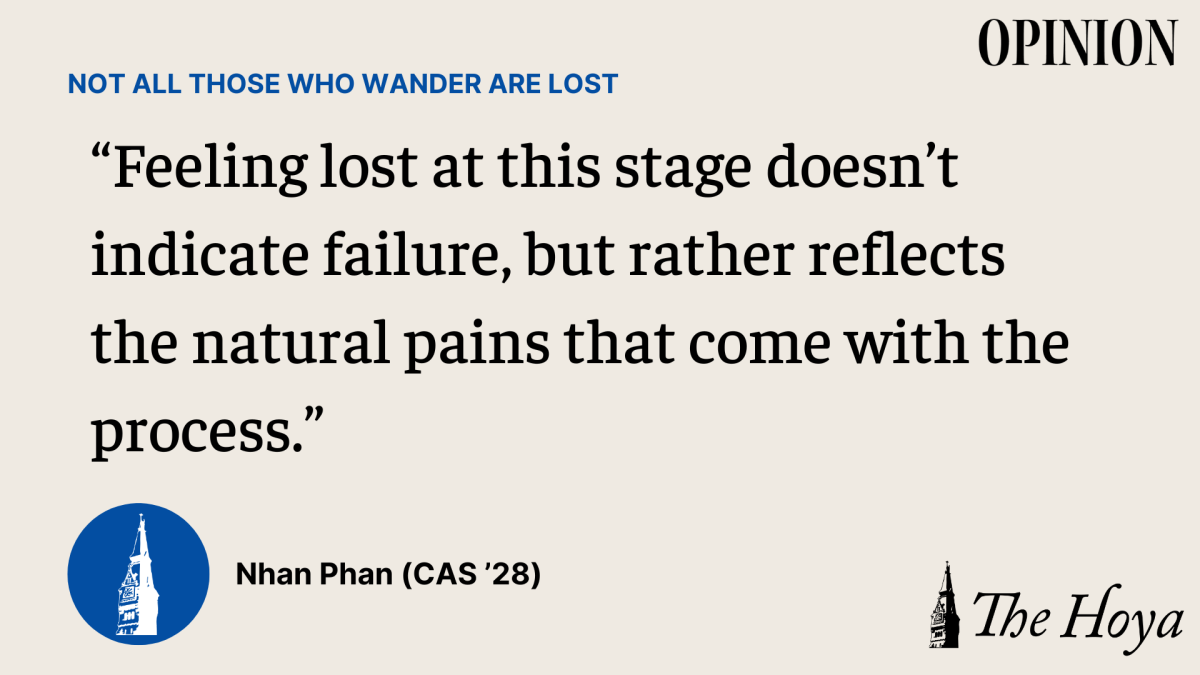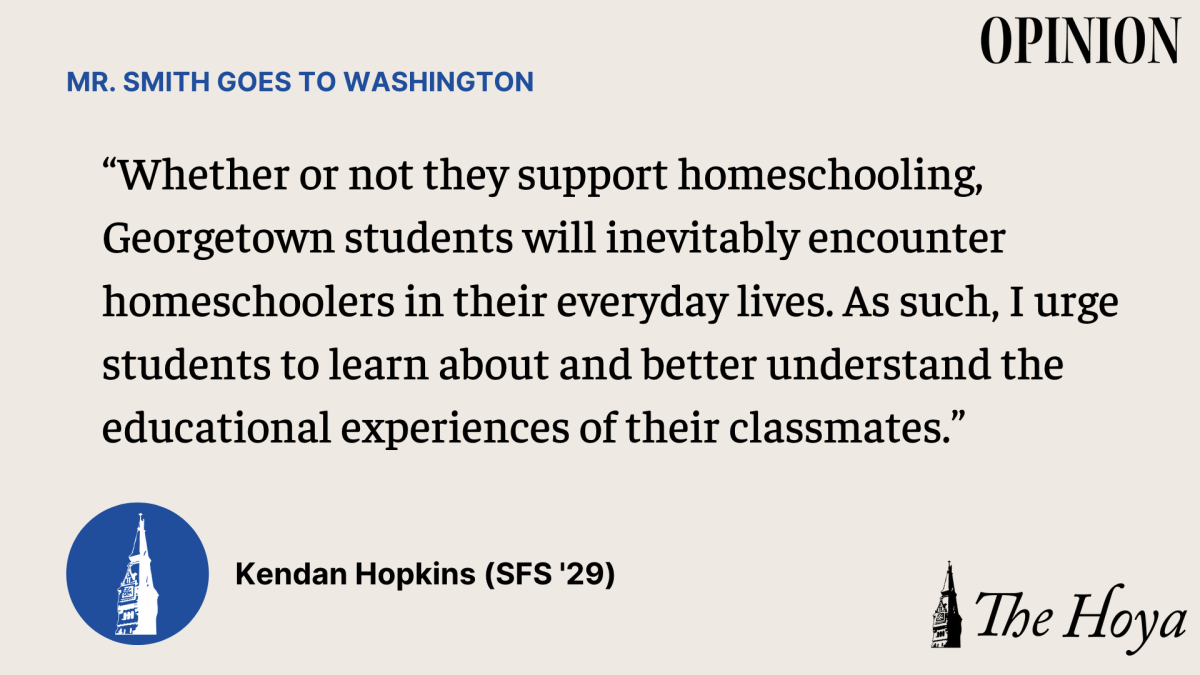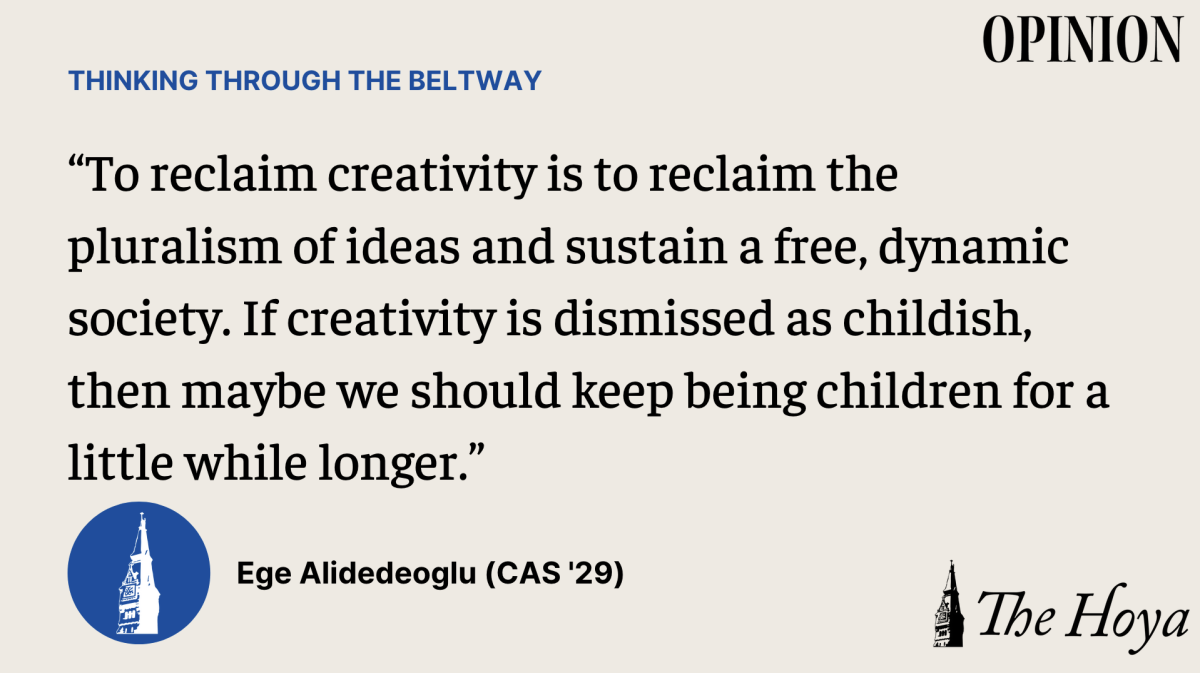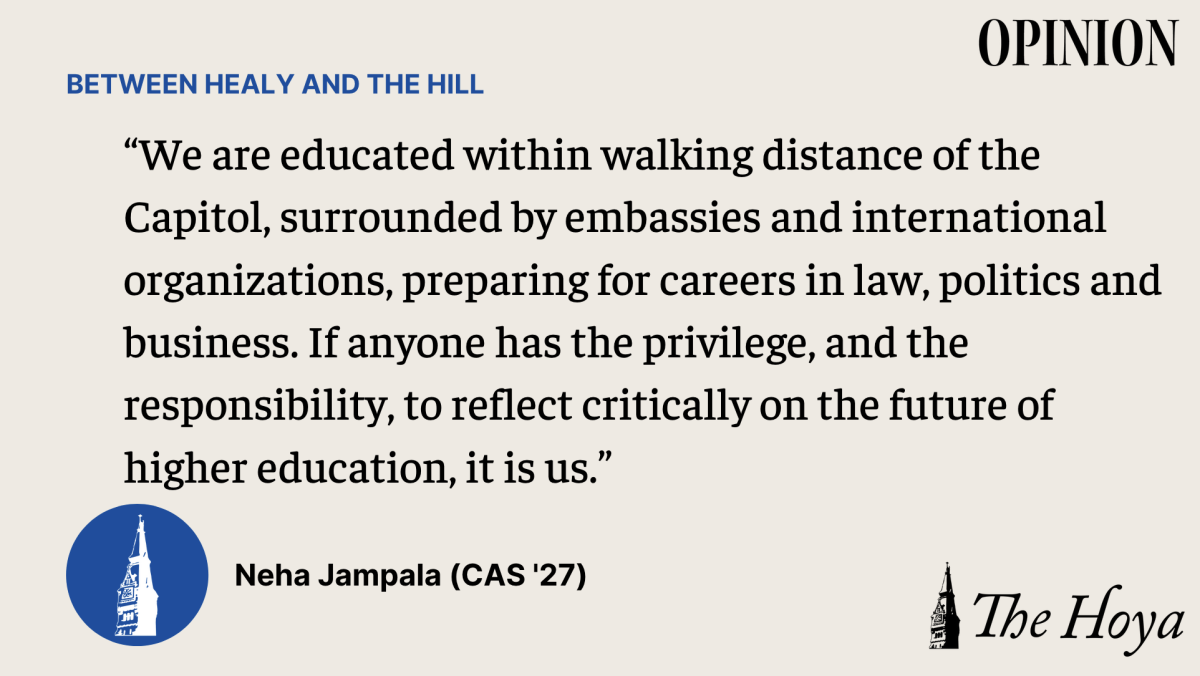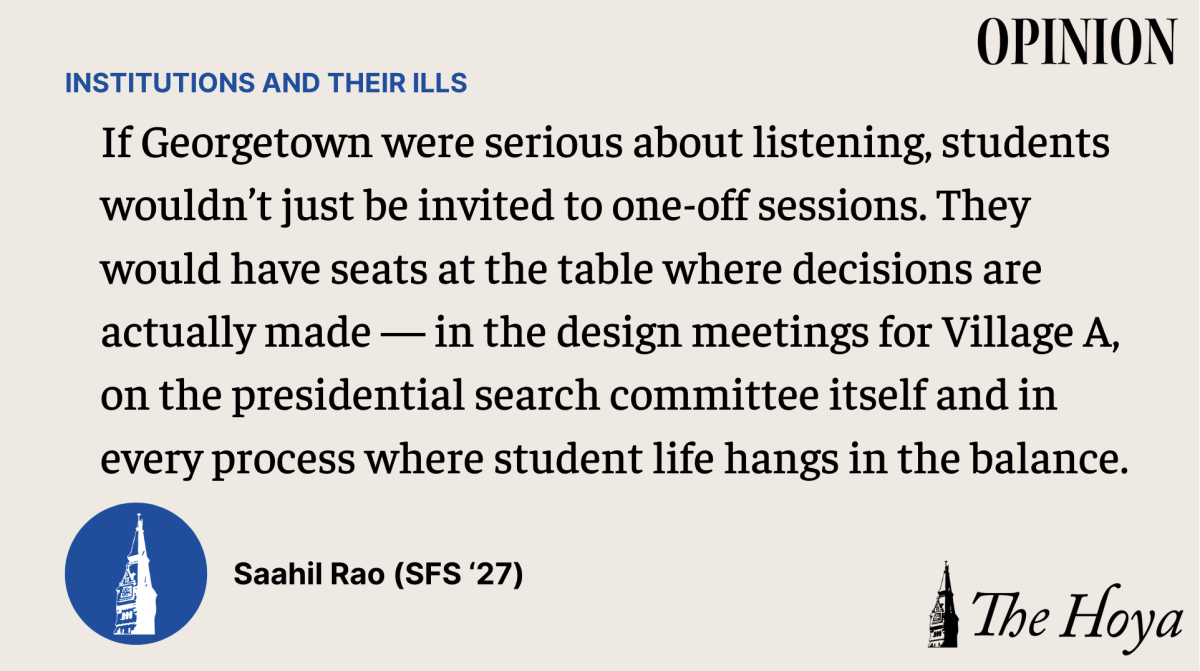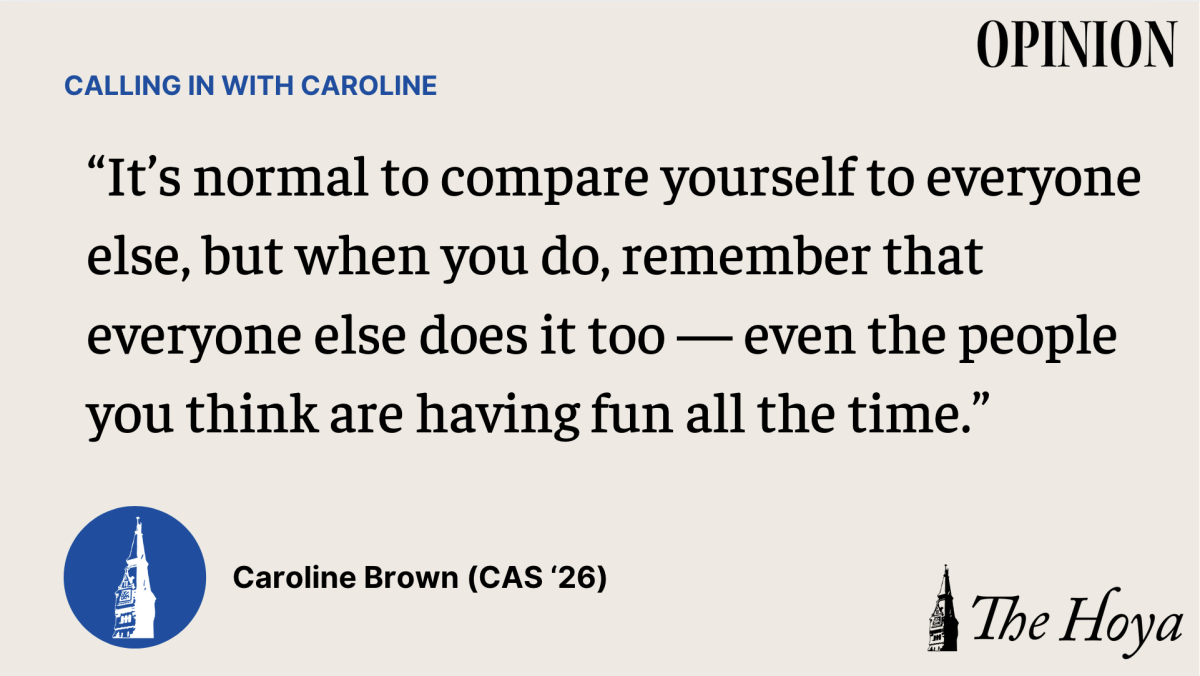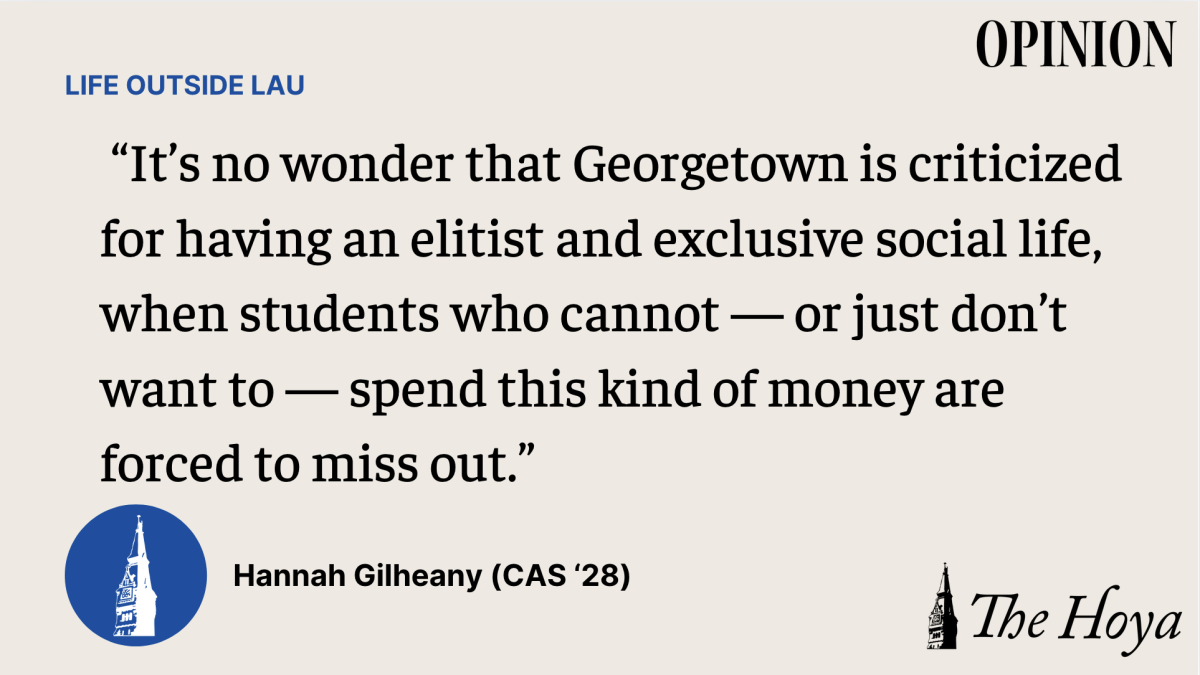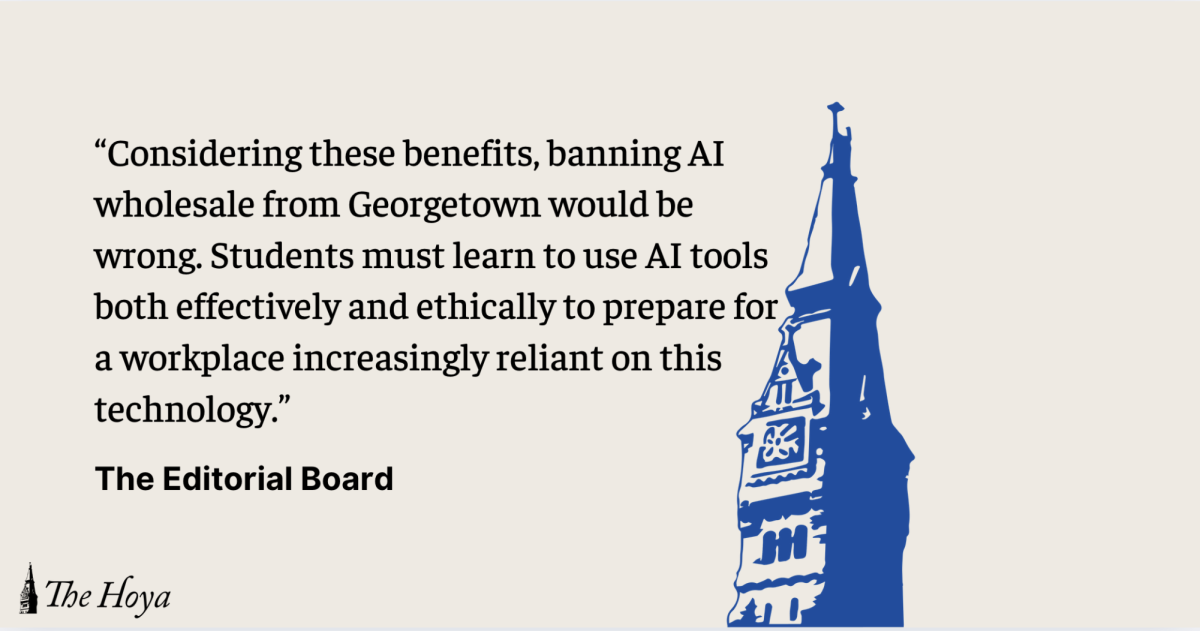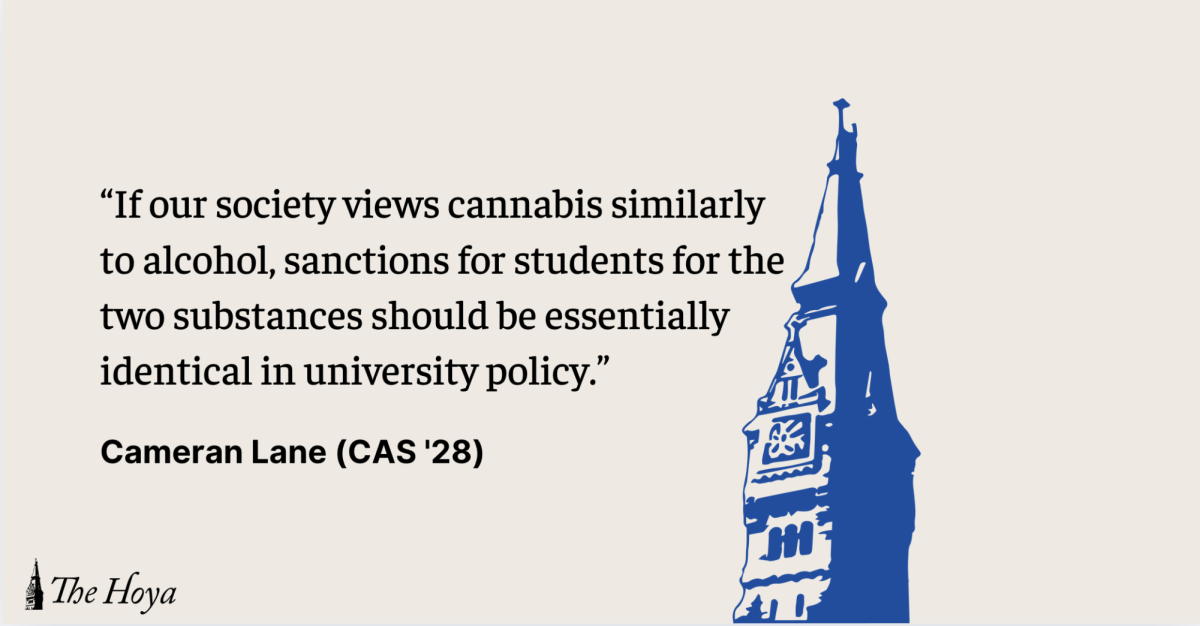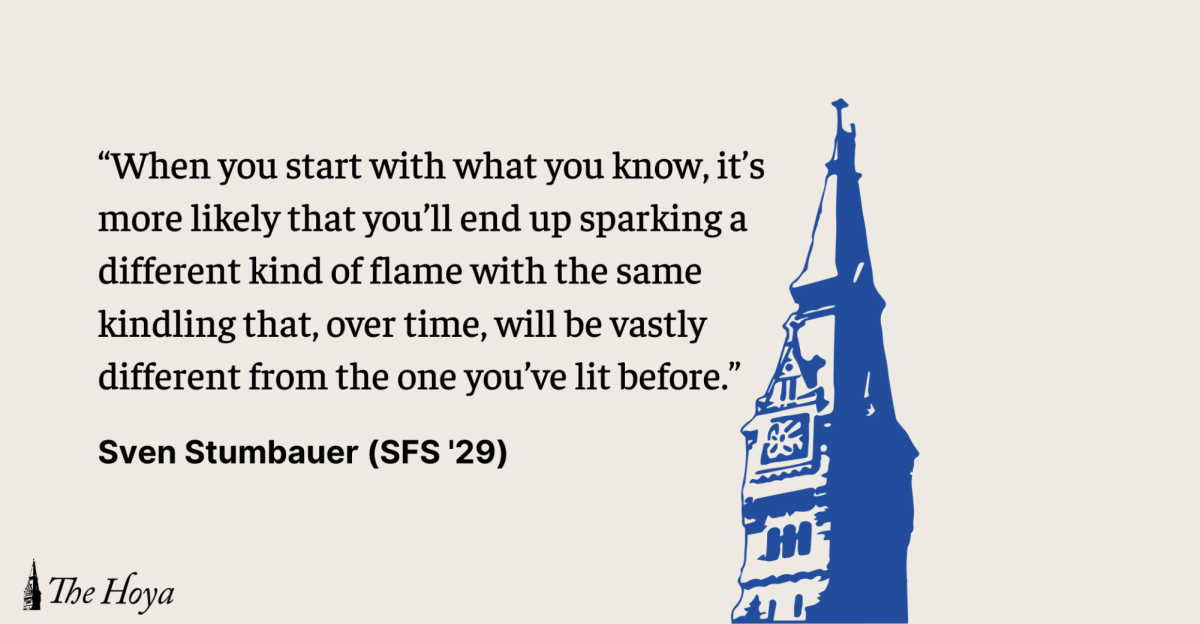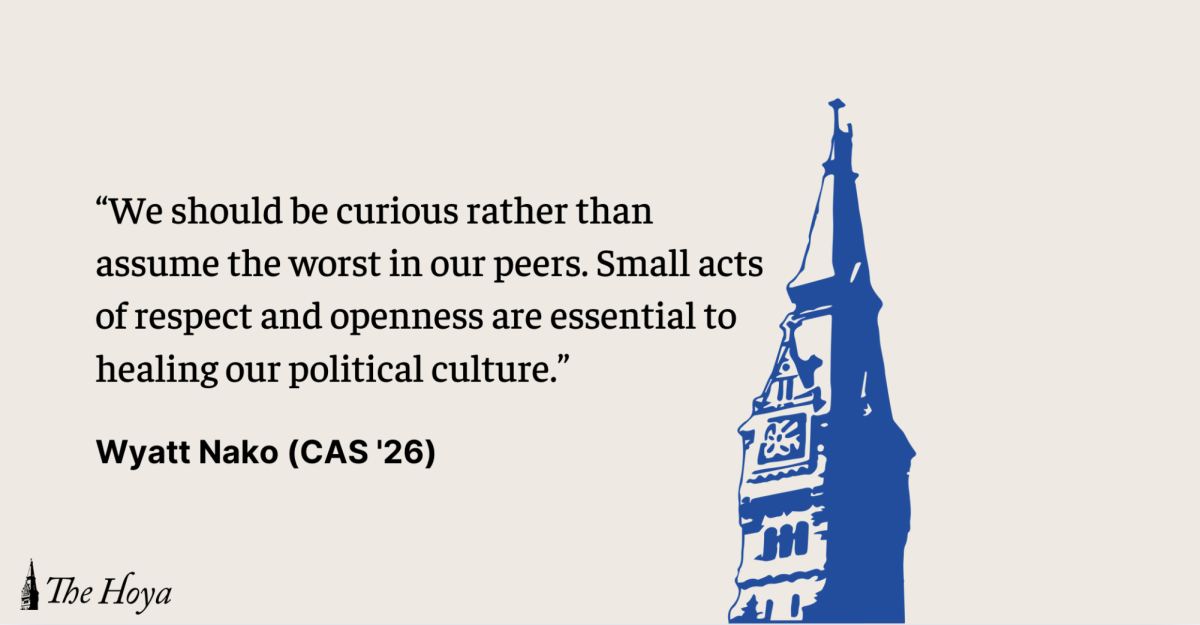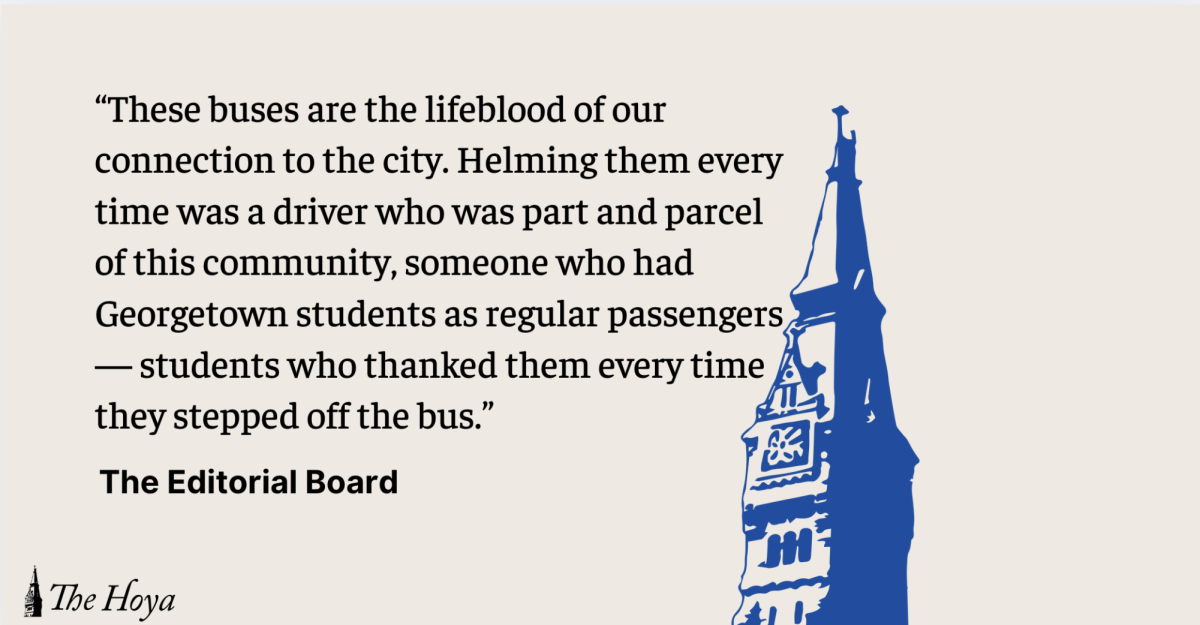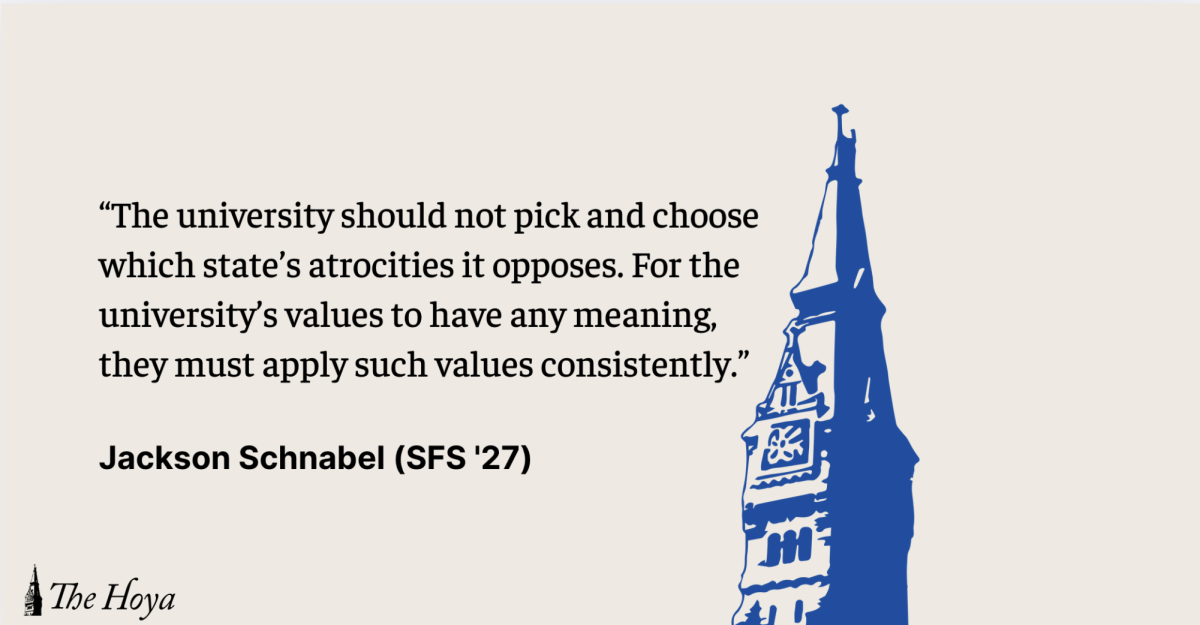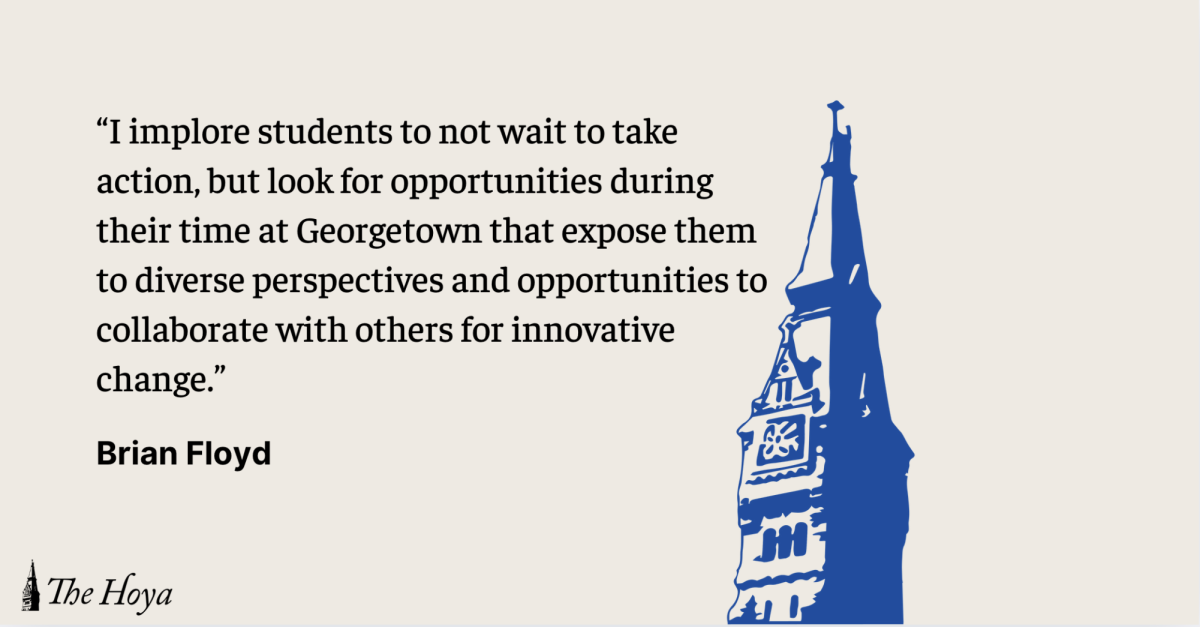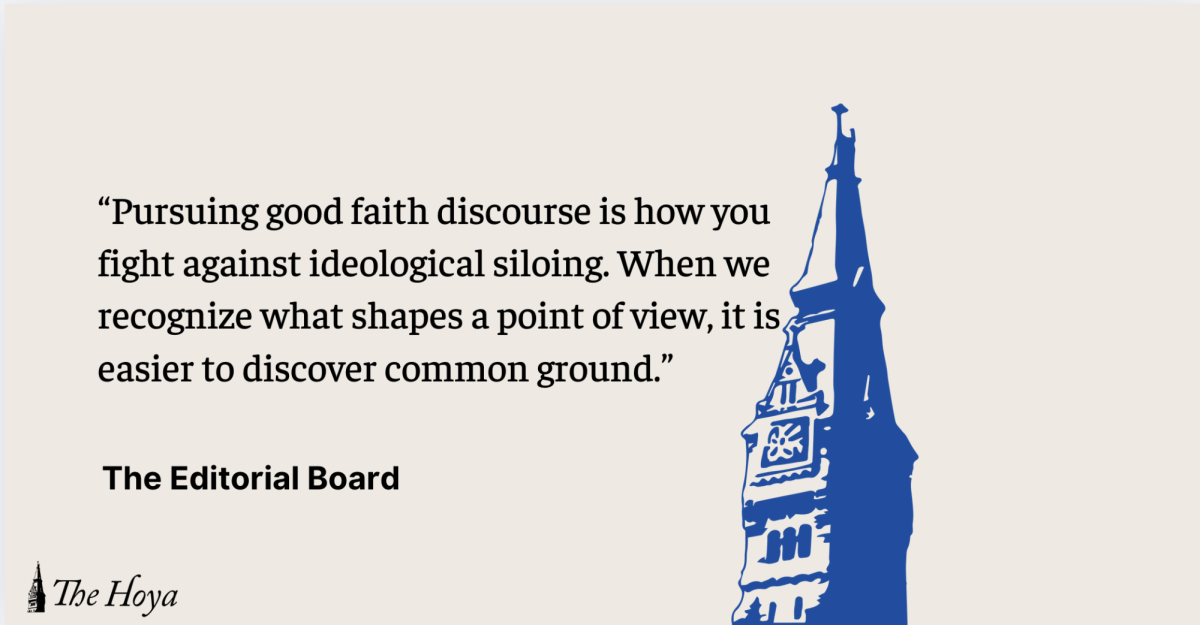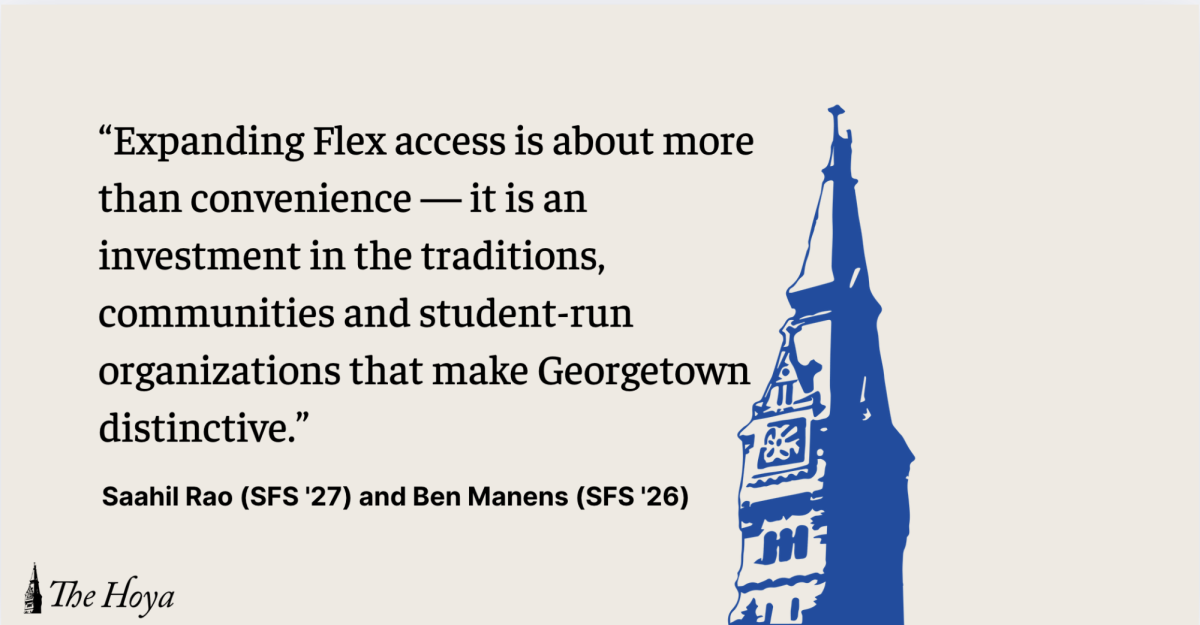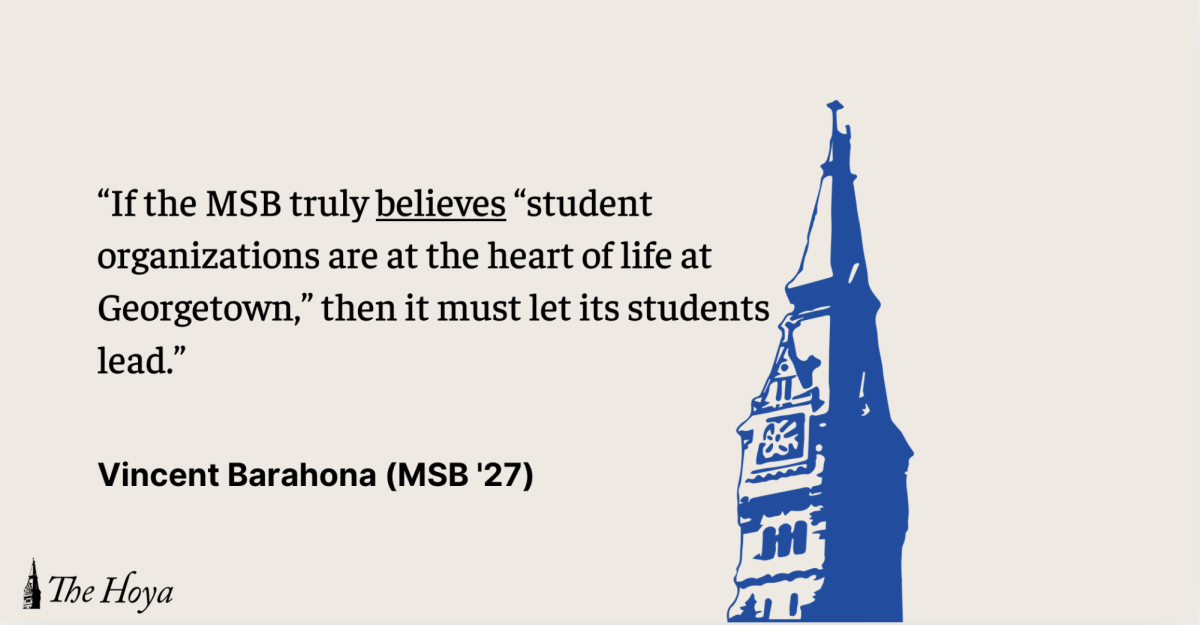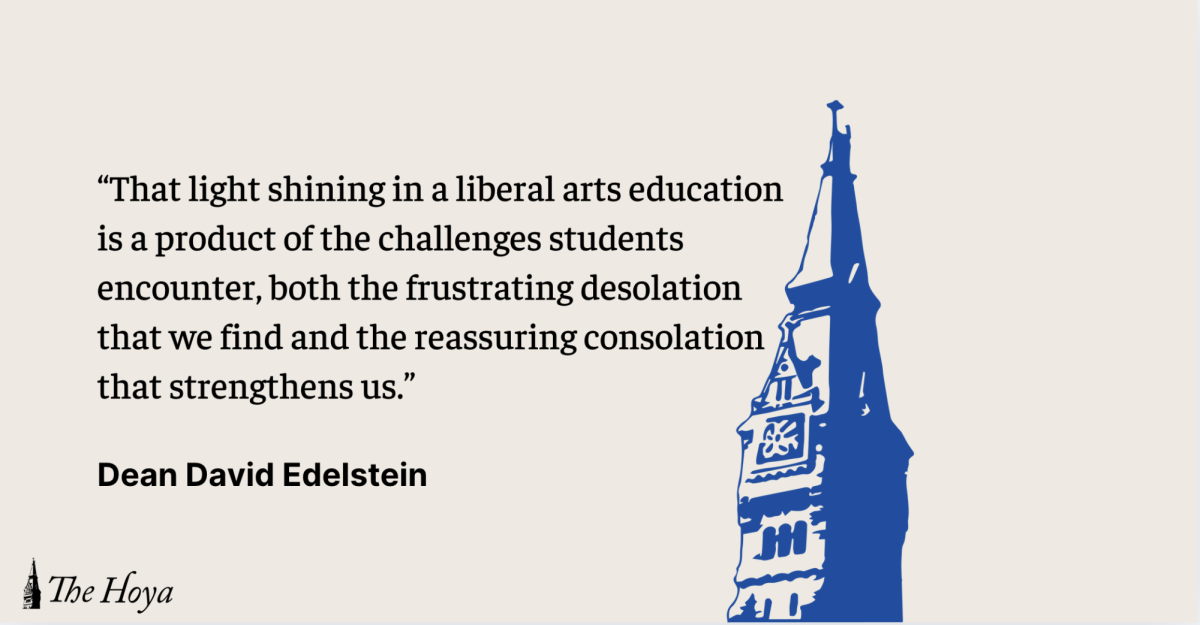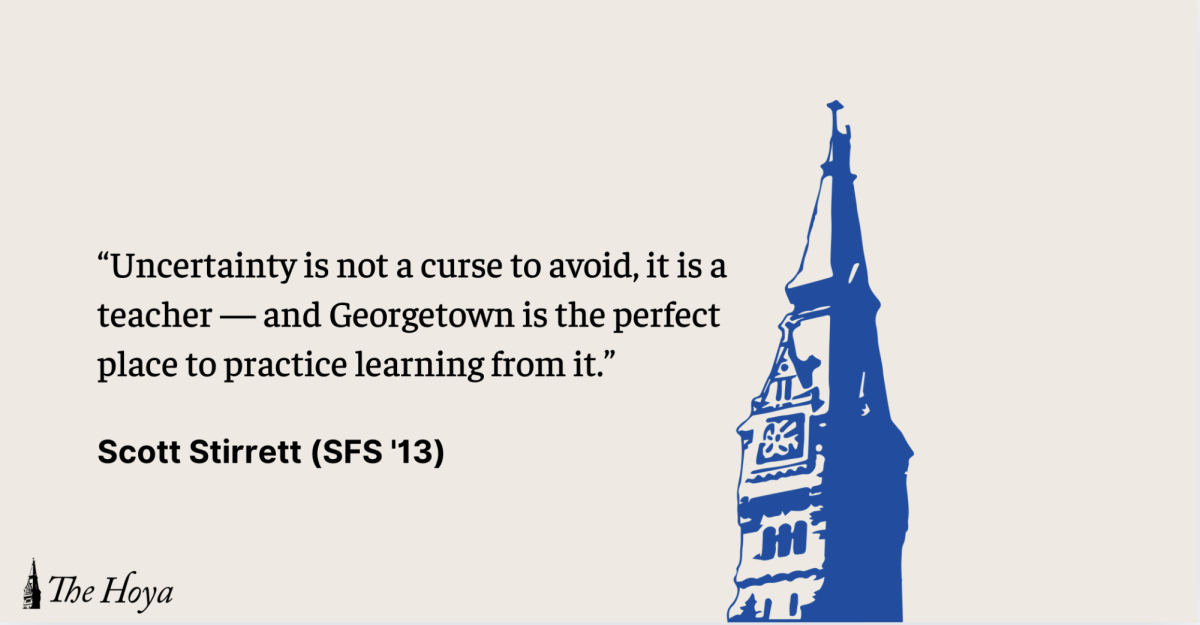As a first-year student, I’ve been actively searching for opportunities on campus from an outsider’s perspective, seeking jobs and club connections. Coming in without the insider knowledge or networks that upperclassmen have built over time, I had to approach things differently. My unfamiliarity with campus systems gave me a unique vantage point. Scouring through the Georgetown Management System (GMS) and the tables at the Council of Advisory Boards (CAB) Fair, I was determined to be actively involved on campus. After receiving several rejections from clubs and being denied my requests for a federal work-study award for on-campus jobs, I felt dejected. However, as lost as I might have been, I kept looking — I forced myself to understand that continuing to chase new opportunities was all that I could do. I also began to recognize that not every opportunity needs to be grand to have a meaningful impact.
It can be easy to let ambition cloud one’s vision of reality. Admittedly, I entered this process naively expecting numerous new doors to open for me the moment I came to Georgetown University. But I soon realized that those same doors can shut as fast as they open. A somewhat disheartening thought: It seems to me that getting into Hilltop Consultants is even more difficult than gaining admission to Georgetown itself! The unfortunate reality is that the competition for involvement opportunities can be fierce, and not every door will swing wide open, regardless of how eager, ambitious or prepared we feel. This can be especially daunting for first-years like me, who are navigating this application process for the first time.
While updating my resume, I found myself embellishing the skills I had gained during my previous work and extracurricular experiences. I used phrases like “superior interpersonal skills,” “mastery of productivity and presentation software” and “outstanding academic acumen.” In doing so, I realized I was adept at creating an illusion of competence, portraying myself as someone who tackles any challenge. However, this process inadvertently inflated my expectations for the types of opportunities I thought I should pursue. The more I exaggerated my abilities on paper, the more daunting the gap between my perceived qualifications and actual capabilities became.
When rejection followed rejection, I was left questioning not only my qualifications but also my self-worth, now that my inflated perceptions had set me on a path that didn’t align with my experience. While I feel ready to tackle any opportunity that comes my way, the reality is that many positions require qualifications — senior leadership experience, past internships or proficiency in industry-specific software — that I haven’t yet built as a first-year. It became clear that ambition alone wouldn’t be enough; I would need to develop these skills and experiences over time to align with the demands that come with the opportunities in question.
Upon reflection, I understand that this feeling of uncertainty is a healthy part of my transition into a new chapter of my life. Feeling lost at this stage doesn’t indicate failure, but rather reflects the natural pains that come with the process. More importantly, it teaches us that when faced with rejection, we should continue to seek out opportunities anyway — even those that seem unrelated to our long-term goals. Sometimes, minor opportunities can generate major revelations about what we are passionate about, what we are good at or how we want to navigate our future. Embracing these seemingly small opportunities can help us uncover hidden talents or unexpected passions and even reshape how we envision our future.
I’ve since decided to revisit the “Skills” section of my resume. Instead of fancy fluff, I’ve decided to be honest with myself and highlight skills that are truly pertinent to me, such as “effective communication” or “conflict resolution skills.” Inflating what we think we’re capable of only sets us up for disappointment when the reality of our experience doesn’t match the expectations we’ve created for ourselves. Instead, by confronting feelings of being lost and frustrated, we should all strive to be honest with ourselves and identify what we can truly bring to the table.
In this way, my opportunity-seeking journey becomes less about chasing an ideal and more about exploring what I want to become. Feeling lost is not a flaw; it’s a fundamental part of growth. I encourage everyone to continue to feel empowered to look for opportunities that resonate with who you truly are instead of the person you exaggerate yourself to be.
Nhan Phan is a first-year in the College of Arts & Sciences. This is the third installment of his column, “Not All Those Who Wander Are Lost.”


